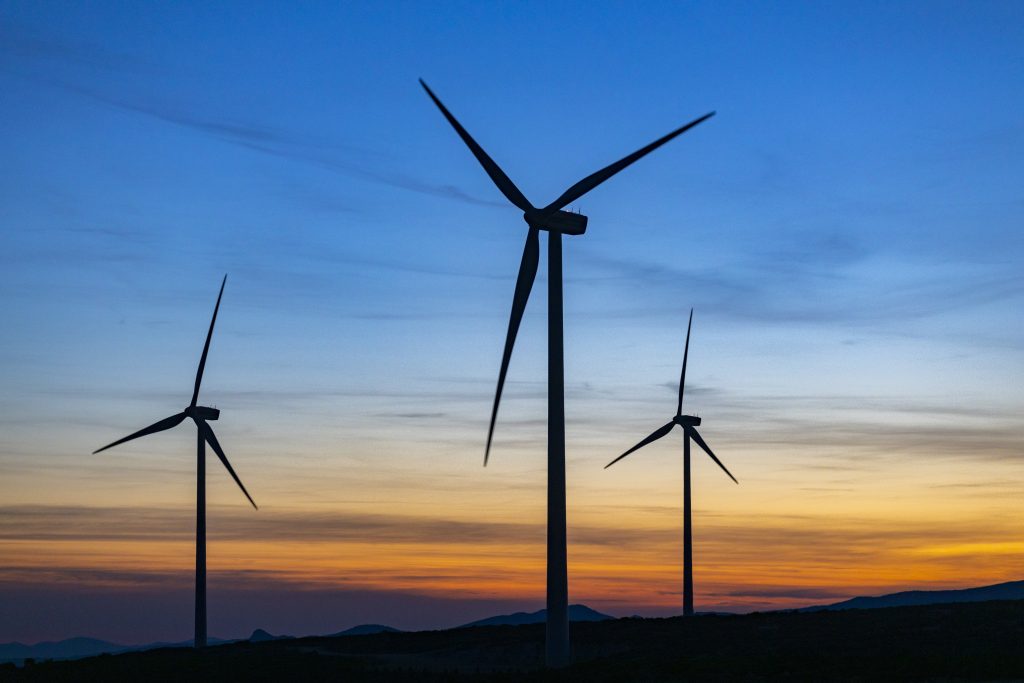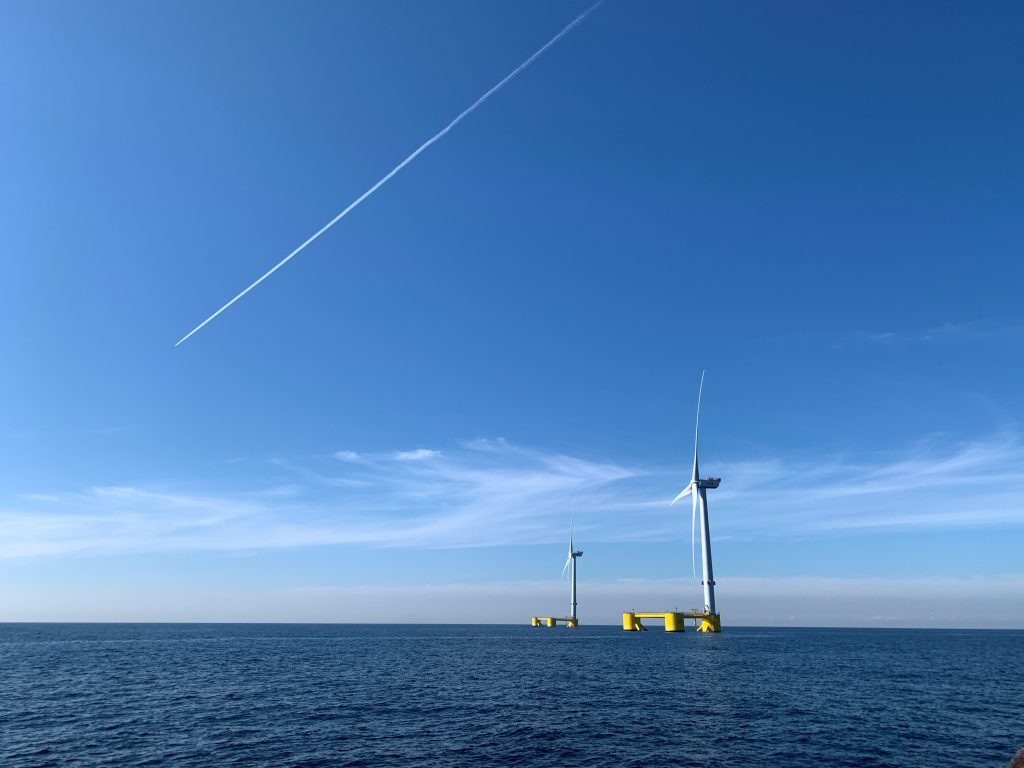Corporate News
Answering questions within the conference of the 3rd Renewable and Storage Forum of Energypress, the President of the Hellenic Association of Electricity Producers from RES and TERNA ENERGY, Mr. G. Peristeris deconstructed, with arguments and numbers, the claims that green transition in energy is supposedly expensive, supporting, on the contrary, that it is cheap, ensures sustainable prosperity for all and exempts our country from energy and national subordination.
Foreign interests and geopolitical games inflate prices
Referring to the price increase in gas and electricity, he ascribed them to the geopolitical and economic interests of producer countries that exploit natural gas as a transitional fuel while he recalled similar energy crises to fossil fuels in the 1970s, 1980s and 1990s.
He also emphasized on the fact that the right subsidy policies for RES in the previous years have led the cost of wind and photovoltaic MWh for new facilities below € 55 / MWh in our country, and this cost continue to decline.
On the contrary, huge subsidies on fossil fuels (coal, lignite, oil, gas) have continued to rise for decades, reaching unbelievable numbers: in a new International Monetary Fund study released just a few days ago, subsidies only for 2020, amount to $ 5.9 trillion or 6.8% of world GDP.
Mr. Peristeris stated that had there not been for a delay in the increased penetration of RES as well as in the institutional framework for energy storage, the problem would be much smaller today.
Finally, he pointed out that households must be protected from this occasional rise in prices through subsidy. This subsidy must come from the state’s budget resources as well as Europe’s resources, but in no case, should this drain special RES account, which is the main tool to support the penetration of RES, because in this case we would have the opposite results, meaning less RES and higher energy prices.
The climate crisis has greater consequences for Greece
The warmest year ever recorded on Earth was 2021 by far and this may be our last chance to react, said Mr. Peristeris, emphasizing on the fact that Greece is facing a greater threat as a coastal Mediterranean country, since the climate crisis is leading the country towards rapid desertification.
The only convincing answer to the rapidly deteriorating climate crisis, floods and snowstorms, heat waves and fires is decarbonization, he said, which cannot be done without RES and Storage.

Our country under energy and national subordination
Referring to a recent survey of Foundation for Economic & Industrial Research, Mr. Peristeris said that 66.5% of energy in Greece comes from imports of oil and gas and pointed that when 2/3 of energy is imported, the term energy dependence is rather mild and it would be more honest to talk about energy – and eventually national – subordination.
He even described it as a double subordination: both in foreign interests and in polluting fossil fuels, since 85% of the available gross energy in Greece comes from oil, natural gas and coal. The lignite is of course ours, he said, but unfortunately it is highly polluting due to poor quality.
However, wind, solar energy and hydroelectric power are also ours, he pointed out. Clean, Cheap and Inexhaustible.
According to Foundation for Economic & Industrial Research, the President of Hellenic Association of Electricity Producers from RES reminded that 27% of the country’s product imports are energy products which load the balance of payments each year with a large deficit, amounting to 4.4 billion euros in 2019.
Large-scale storage is an all-powerful tool
Had the state not prevented, said Mr. Peristeris, incomprehensibly to us, the large-scale energy storage, by not securing the appropriate institutional framework in time as well as the insentives for these forward investments, we would have countless benefits and then listed them:
• Much greater penetration of RES, since large-scale clean energy storage gives the most appropriate answer to RES not providing energy constantly
• Much cheaper power generation
• Security of supply and restraint of energy prices, because when demand exceeds supply, stored energy immediately fills the gap and keeps prices low
He even gave a simple example: If the submarine gas depot of South Kavala were now in operation, there would be a significant weapon against the large fluctuations of international gas prices. One month ago, an annual saving of 120 million euros per year would be secured for final gas consumers with the gas prices of early September, while at current prices these savings would reach astronomical levels. amount of EUR 400 million per year.
Pumped storage project is the most appropriate storage solution for Greece
The Greek government is a member of the alliance for the pumped storage promotion, with many other governments, international financial institutions, world leading energy companies and NGOs, said Mr. Peristeris regarding the large storage method and also referred to the views of experts:
Mark Carney, former UK Central Banker and UN special envoy for climate action and funding, said regarding pumped storage: “it provides unique services that batteries fail to provide”.
Or by Thomas Östros, Vice-President of the European Investment Bank (EIB), who says: “Among storage technologies, we consider hydroelectric power from pumped storage as one of the most mature, reliable, and flexible large-scale solutions for network flexibility and security, which promotes intermittent RES with safety, sustainability and low cost.”
Mr. Peristeris added that in energy infrastructure all technologies are necessary, but priority must be given to infrastructure investments with high domestic value and multiplier effect on the economy, since they create thousands of new jobs in Greece.
He mentioned hydroelectric, pumped storage, onshore and offshore wind as such investments in the production and storage of clean energy.

Regarding storage, Mr.Peristeris pointed out that pumped storage should be the number one choice as it is a mature, reliable and flexible solution that can cover country’s needs in energy. Batteries can be used complementarily, however we should keep in mind that they cannot provide services of similar size and duration, while, in terms of materials and construction, they are “a remittance to Asia”, when the pumped storage units have a significant financial footprint and multiplier benefits in the domestic market.
Regarding the new pumped storage power required, he mentioned a recent national study of the NTUA for RAE which estimates it at 1000 to 1500 MW by 2030.
He also pointed out that, PPC had pumped storage projects for years now that in the past operated balancing within a single electrical system and offered this kind of benefit, but in recent years they operate either in low capacity or not at all.
In this context, he even pointed out that “Unlike others, we have a flaw as GEK TERNA: we have been saying the same things – that we consider right – consistently for fifteen years and we do not change our opinion according to narrow, occasional, business interests.
Regarding wind turbines witch hunting
“Recently, and especially after the summer fires, some were targeting onshore wind farms as to where they are placed,” said Mr. Peristeris regarding the country’s wind potential, asking for the widest possible political consent about this matter. And he continued saying that:
– First, the State chooses the framework for the development of RES and as such it has chosen it for wind turbines, based on their benefit to the National Economy, the environment and employment, but also the international commitments of our country.
– Secondly, dealing with the climate crisis and the energy subordination of the country do not allow us the luxury of choice. Wind turbines are an integral part of RES policy in a country with inexhaustible wind potential and must, with the necessary exceptions, be placed where it is windy. Let’s not forget that the lignite mines were created close to lignite deposits and the lignite plants next to lignite mines.
– Thirdly, wind farms, land and sea, are investments with high percentage of domestic added value and a high multiplier, so many new jobs are created and as a result unemployment is reduced.
– Fourth, due to the European origin of wind turbines mostly, there is high reliability in costs and delivery schedules and minimal delays in the fast implementation of investment plans required to achieve national targets and commitments.
He also reminded what is happening today with the investment plans of the photovoltaic stations, the panels of which would be manufactured in Asia, emphasizing that there is no cost commitment, which has gone up due to extreme increases in prices, e.g., silicon, film and other materials, there is also no commitment of delivery time due to the energy crisis, which leads many investment projects to postponement or even cancellation.
Finally, Mr. Peristeris referred to those business interests, in our country and internationally, which state that prices have gone up, and the green transition is largely to blame for it, due to the increase in the cost of CO2 emission rights. However, these business interests conveniently forget that according to the official data of the European Commission, this increase contributes only slightly to the increase in energy costs, while the main responsible is Natural Gas with its costs and also geopolitical games. Yesterday’s victim was Moldova who suffered 50% decrease in NG supply.
Sustainable prosperity for all
The triptych of Renewable Energy Sources, Large Scale Storage and Interconnections, said the President of Hellenic Association of Electricity Producers from RES, ensures sustainable prosperity for all.
Thousands of new jobs are being created and the State collects additional taxes and insurance contributions and has more resources for social policy.
The new generations, capable Greek women and men with high education, will have the opportunity to work in well-paid jobs, in interesting fields of economic activity in their homeland and will have high motivation to stay here and work, or, return to Greece if they are abroad.
Low energy costs for farmers, freelancers, industry, tourism and transport offer extroversion and competitiveness, through lower prices for products and services.
Especially in industry, the new tool that is being introduced in Greece is the PPAs. TERNA ENERGY and HERON have already signed the first four contracts, having started distribution of RES energy quantities from 1/10/2021 – thus actually opening the market for cheap electricity in industry and large commercial companies. Mr. Peristeris added that the fact that some on behalf of large consumers do not miss the opportunity to turn against RES while at the same time running, and correctly, to supply electricity from RES is inexplicable.
From the lowest prices in electricity and other products and services, due to RES, all households have a double profit, but mainly the economically weaker ones.
With the right priorities, the triptych of RES, storage and interconnections ensures the national interest and security, the economic interest of many, the social cohesion and prosperity and the protection of the environment at the same time, concluded the President of Hellenic Association of Electricity Producers from RES.